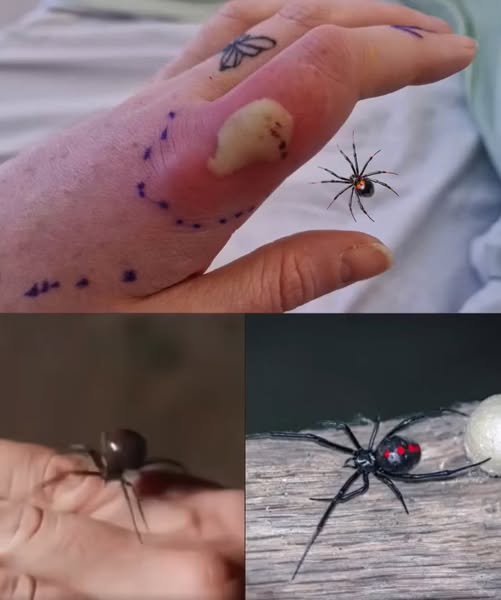Getting bitten by a spider can be alarming, especially if the culprit is one of the two most medically significant spiders found in the United States—the Black Widow or the Brown Recluse. Although bites from these spiders are relatively rare, they can lead to serious health issues that require prompt and appropriate medical care.
Understanding the appearance of these spiders, the symptoms their bites can cause, and how to respond effectively is crucial for ensuring your safety and preventing complications. The Brown Recluse is usually light to dark brown in color and is most easily recognized by the violin-shaped mark on its back. These spiders are typically shy and tend to hide in dark, undisturbed areas like closets, basements, sheds, and behind furniture. While their bites may initially go unnoticed because they are often painless, they can become serious over time. The affected area may become red and swollen and can later develop into an ulcer with dead tissue, a condition known as necrosis.
In more severe cases, people bitten by a Brown Recluse may also experience systemic symptoms such as fever, chills, nausea, or muscle aches. Although fatalities are extremely rare, the wound can become infected and require medical attention, especially if the tissue damage spreads or healing does not progress. On the other hand, the Black Widow spider has a shiny black body with a signature red hourglass marking on the underside of its abdomen. Female Black Widows are more likely to bite and are usually found in woodpiles, garages, sheds, or crawlspaces. Unlike the Brown Recluse, a Black Widow’s venom affects the nervous system rather than the skin and tissue.
Symptoms of a Black Widow bite typically begin within an hour of the incident and may include intense pain at the bite site, muscle cramps, nausea, abdominal pain, sweating, and even difficulty breathing. The pain can sometimes radiate throughout the body and may resemble the discomfort caused by appendicitis or a heart attack, depending on where the bite occurred. While most healthy adults recover without complications, the bite can be particularly dangerous for children, older adults, or individuals with pre-existing health conditions. If you believe you’ve been bitten by a Brown Recluse, begin by cleaning the bite with mild soap and water to prevent infection. Apply a cool compress to reduce swelling and elevate the area if possible. Refrain from applying heat, which can worsen tissue damage. Monitor the bite closely for changes such as darkening skin, spreading redness, or the formation of open sores. If symptoms progress or become severe, consult a healthcare provider as soon as possible.
